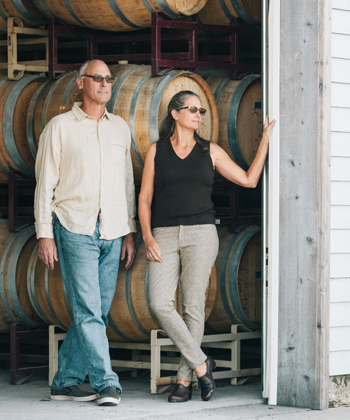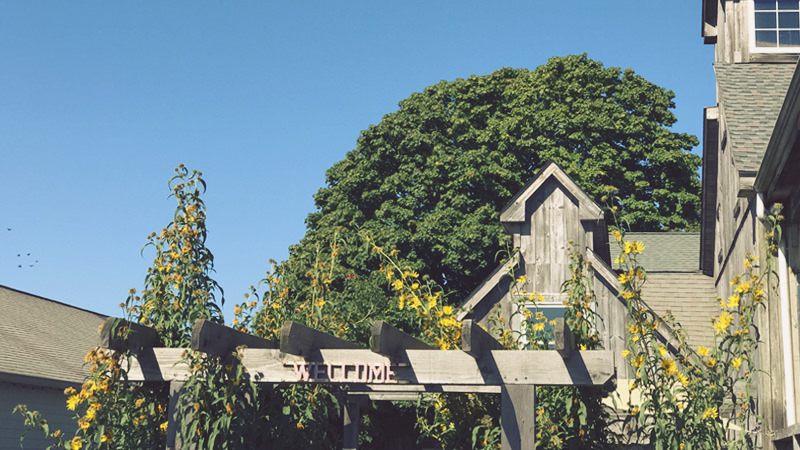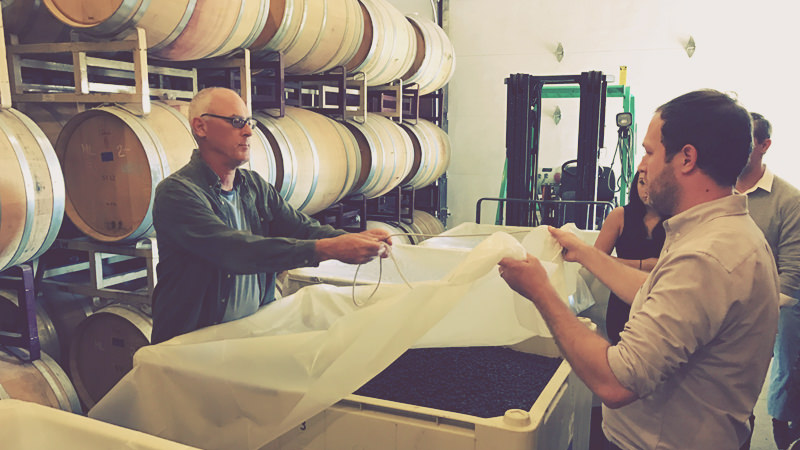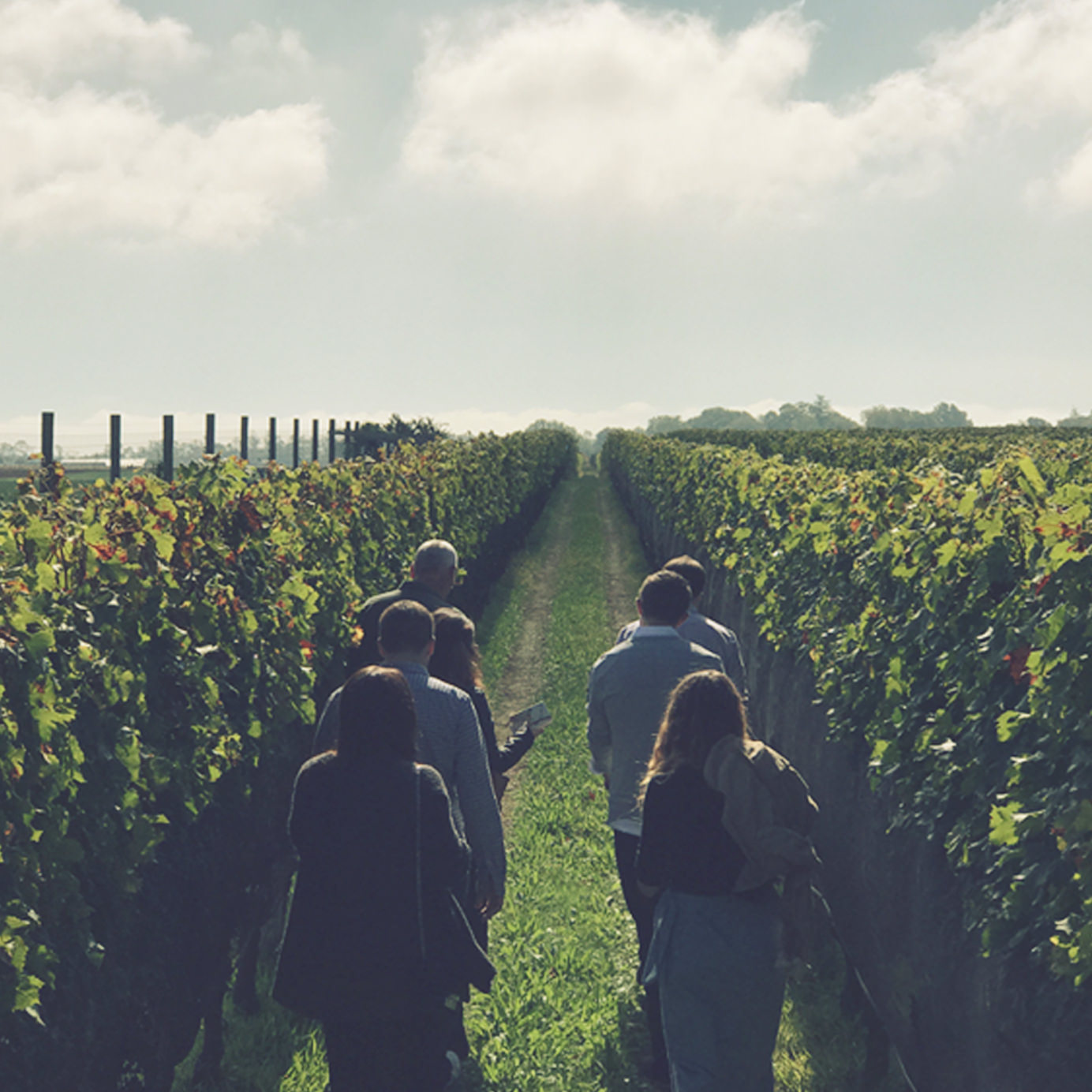Since its first wines were released in 2002, Shinn Estate Vineyards on Long Island’s North Fork has been a force in the region. Until the winery arrived on the scene, the Long Island wine industry hadn’t been shaken up much since the early 1970s when it started. Although there were dozens of vineyards, they were mainly a destination for weekend day-trippers. The wines were sold locally, and in some cases, in New York City. But with the arrival of Barbara Shinn and her husband David Page, all that changed.

The couple had spent years in the hotly competitive New York restaurant business, most notably as the owners of Home, a successful West Village spot where they got out ahead of the comfort-food craze. They arrived on the North Fork with a farm-to-table sensibility, a talent for marketing, and a desire to push Long Island wine production in a new direction.
That direction was toward sustainable farming and a rejection of the longstanding belief that chemicals were the only way to control pests, mold, and mildew in a humid, maritime climate. But it wasn’t easy going. Many in the industry dismissed their point of view as impossible — crazy talk by a couple of arrivistes in a region that had already been producing wine for almost three decades. “Long Island wine country isn’t a community or industry where anything new is embraced easily,” Lenn Thompson, publisher of TheCorkReport.us, tells me in an email. “David and Barbara came out with strong ideas for what they wanted to build here and the confidence to not deviate from it.”
And they ruffled a few feathers along the way, says Thompson. “I think that intimidated some people,” he explains. “It also rubbed some people the wrong way. I’m not sure they cared much. They had a strong vision and they built it.”
Despite the controversy they stirred up, Shinn Estate succeeded in making excellent wine, putting Long Island on the map as a destination for sustainable wine. But they didn’t just succeed at making wine. Their oasis of sustainability has bled out into the culture more generally. Today, after 17 years in the business, their methods have become mainstream. Ideas like organic growing, biodynamics, and a focus on terroir are now everyday concepts that most wine aficionados will recognize and appreciate.
For this reason, it is particularly surprising that, after 15 vintages, the winery has been sold.
*
From the get-go, Page, 59, and Shinn, 54, had an aversion to chemical treatments. Eschewing chemicals is a crucial step in trying to make “terroir” wines, Page told me recently. Eliminating as many chemicals as you can from the equation means you can take advantage of natural yeasts, which exist in a kind of feedback loop with healthy, vibrant, living soil. “If you have a catalogue of Sauvignon Blanc yeast to choose from as a winemaker, you choose one that reads well on paper,” Page explains. “You immediately put your ego on the wine, as opposed to letting it express itself.” Going natural means allowing the terroir to speak for itself, rather than imposing yourself onto it, he says.
This ethos of sustainable winemaking wasn’t limited to their own winery. In 2011, Barbara Shinn founded Long Island Sustainable Winegrowing, a non-profit that provides education and certification in sustainable practices and quality wine-grape production for Long Island vineyards.

It’s had a lasting and important effect, says Louisa Hargrave who, along with her husband, Alex, founded Long Island’s first vineyard in 1973. “Barbara and David, they got it,” Hargrave tells me. “They really did understand the whole concept of protecting the soil and respecting the soil.”
But it took a while for their point of view to take. “At times, Shinn Estate Vineyards existed on its own island within the region,” says Lenn Thompson.
Page and Shinn are fully aware that they and their methods were controversial. “When we started using words like ‘holistic’ and ‘biodynamic’ way back, soon after we planted the vineyard, the media, writers, and other winemakers would call what we were doing ‘witchcraft’ or other kinds of names – you know, ‘biodynamics, that’s voodoo viticulture,’” Page recalls.
Others said it wasn’t scientific. “We were some of the first people to say, maybe you don’t want to be 100 percent science-based,” Shinn says with a laugh.
To this day, the couple are controversial on the North Fork. As they developed and implemented their new practices, they also promoted them heavily – and some in the North Fork wine industry believe they promoted them too heavily. “A lot of people are upset with them out here because they would say they were biodynamic or organic,” one industry insider tells me, asking not to be identified. And while the couple did, indeed, adopt many or most organic and biodynamic principles, the source points out that they were not “certified” organic or biodynamic. “I think a lot of what they did was misleading in the way they talked about it,” the source adds, pointing to another grower who also adopted organic and biodynamic methods long ago but who won’t market his wines as such; from time to time, vine disease issues that sometimes bedevil the North Fork force him (as others) to resort to conventional treatments.
But Page and Shinn accomplished a lot by telegraphing their organic and biodynamic ethos. “David and Barbara came along at a time when customers were starting to care more about such things,” says Thompson. “They actually probably helped push people to care. I’d say they were the first to leverage sustainability as a crux of their messaging and marketing.”
By emphasizing sustainability in winemaking as crucial to their practice, Shinn and Page were instrumental in creating a new environment for Long Island winemaking. In this new environment, not only consumers but producers, too, came to prioritize sustainable winemaking. Their ideas were slowly adopted by others, and today, about half the wineries on the North Fork are following in their footsteps on some level, thanks to the sustainability program Barbara Shinn helped create.

So why, after 17 years of success and controversy, are Shinn and Page selling, just as the movement the couple helped start is becoming mainstream?
When I caught up with the couple recently, they described a combination of reasons that led to the sale. First, Page brought up a sense of accomplishment. The couple has achieved a deeply personal connection to the land, coupled with an unexpected business success. Then there’s a desire to step back from the grind, as they did when their restaurant phase had become too all-consuming. And finally, they described the desire to move on to a next phase of their lives.
But it’s also become something of an M.O. for Shinn and Page. If you think about it, selling Shinn Estate just as the couple’s controversial methods start to become mainstream is reminiscent of the move that brought them to Long Island in the first place. Their restaurant, too, had been ahead of its time, foreshadowing the comfort, farm-to-table ethos that would go on on to ravage fine dining just as Shinn and Page packed up and left. Indeed, Shinn and Page seem to thrive when the going is tough; and when everyone else catches up to their point of view, the couple seems to lose interest and move on. In other words, they are visionaries who enjoy hard work and stick to their guns and ultimately change the entire culture around them.
The new owners of Shinn Estate are Randy and Barbara Frankel. Randy is a former Wall Street executive and real estate investor who probably could have bought a vineyard in any number of wine regions. The fact that he chose this vineyard in this region is a testament to the success and potential of both.
As for Page and Shinn, they will remain on the North Fork for now, having just finished building a new home. They are done with wine, but not sustainable farming. They intend to take it even further, in a non-commercial way, with 14 acres of land they own in Maine.
As she thinks back on the last 17 years or so, Shinn calls it the “experience of a lifetime” and points to the major changes she’s seen in the North Fork wine industry, some of which she helped create.
Page sighs, then calls their time at the vineyard and what they built and achieved here “the most gratifying period in my life and our life together. No question about that.”
